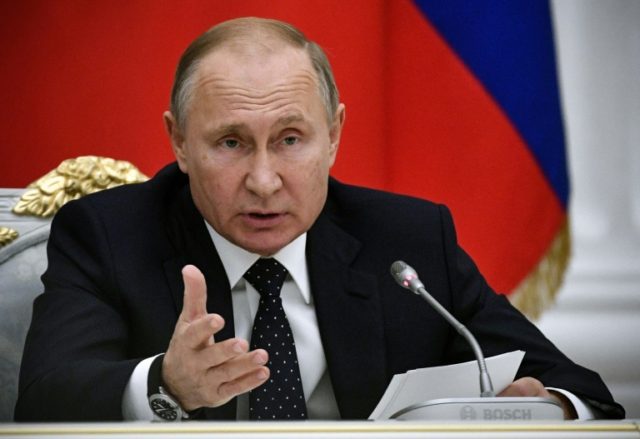The U.S. military is planning to flight test two types of missiles banned by the Intermediate-Range Nuclear Forces Treaty (INF) after the United States and Russia withdraw from the pact in August, Pentagon officials revealed this week.
On Wednesday, the Associated Press (AP) reported:
By moving forward with these missile projects, the Pentagon is not excluding the possibility that the Intermediate-Range Nuclear Forces Treaty could still survive, although it likely will be terminated in August. At that point, Washington and Moscow would no longer face legal constraints on deploying land-based cruise or ballistic missiles with ranges between 500 and 5,500 kilometers (310 to 3,410 miles). The INF treaty has been in effect since 1987.
….
The [U.S.] officials, who spoke to a small group of reporters under Pentagon ground rules that did not permit use of their names or titles, said one project is a low-flying cruise missile with a potential range of about 1,000 kilometers; the other would be a ballistic missile with a range of roughly 3,000 to 4,000 kilometers. Neither would be nuclear armed, the officials said.
The Pentagon is expected to begin testing the missiles in August. Deployment is scheduled to take up to five years. U.S. President Donald Trump’s administration is considering deploying the weapons on the territories of U.S. allies in Europe and Asia as well as Guam.
Citing violations by Russia denied by Moscow, U.S. President Trump announced at the beginning of February that his administration would begin the process of withdrawing from the 1987 Cold War pact intended to help reduce the proliferation of nuclear weapons, drawing a sharp rebuke from the Kremlin.
Russian officials vowed a military response, claiming that U.S. withdrawal from the treaty the could trigger the end of the world.
The Kremlin has repeatedly warned the United States against pulling out of the INF.
In March, President Vladimir Putin’s administration officially suspended Russia’s participation in the INF, attributing the move to “a violation of the United States of its obligations under the treaty.”
U.S. and Russia have repeatedly accused on another of breaching the agreement, signed by President Ronald Reagan and Soviet leader Mikhail Gorbachev in 1987. NATO has also accused Russia of violating the INF.
Earlier this month, Gen. Curtis Scaparrotti, the U.S. European Command (EUCOM) head and NATO’s supreme allied commander, declared that American and NATO troops could not yet mount a credible deterrence against Russian aggression, noting that the Kremlin’s efforts to modernize its armed forces are eroding the United Sates’s military advantage in Europe.
He also said this week that the United States must pay attention to Russia-China military cooperation in Europe.

COMMENTS
Please let us know if you're having issues with commenting.